The Educational Outreach department of the HudsonAlpha Institute for Biotechnology secured a five-year, $1.29 million grant to develop Filtered, a story-driven digital learning platform for bioinformatics and infectious disease. The grant comes from the National Institute of General Medical Sciences of the NIH through the Science Education Partnerships Awards (SEPA). Filteredwill give students an experience that mirrors real life, in order to demonstrate what makes up the rapidly expanding field of bioinformatics – the science of collecting and analyzing complex biological data – and how it will help define the future of science.
Filtered takes students on a journey of discovery as they are charged with researching a pandemic outbreak of a mysterious, fictional infectious disease. They’re asked to use a simulated bioinformatics program to compare genetic sequences of viruses to determine the ancestral origin of this novel and deadly pathogen.
In the real world, while collecting genomic information gets easier and easier, storing and analyzing that information continues to provide new challenges. The field of bioinformatics is one of the fastest growing career paths within life science and healthcare. It has been characterized as a “Bright Outlook Occupation” by the U.S. Bureau of Labor Statistics, projected to grow much faster than average over the period 2014-2024, with 100,000 or more projected job openings. Unfortunately, a lack of skilled personnel hampers the development and application of bioinformatics tools.
“We start with the need,” Neil Lamb, PhD, vice president for Educational Outreach at HudsonAlpha, says, “We found at the Institute that it’s already a challenge to hire people in the bioinformatics space. It requires such a unique blend of science and computational backgrounds.”
“It’s a fascinating job field,” Lamb adds, “And we knew students would be hooked if they got a chance to experience it for themselves.”
Students can interact with Filtered on a tablet or mobile device. An online version of Filtered will also be produced.
It is estimated that by the end of grant, Filtered training will have been provided to more than 500 educators across Alabama and the nation, introducing thousands of students to bioinformatic concepts.
Research described in this publication was supported by the National Institute of General Medical Sciences of the National Institutes of Health under SEPA Award Number R25GM129867. The content is solely the responsibility of the authors and does not necessarily represent the official views of the National Institutes of Health.
